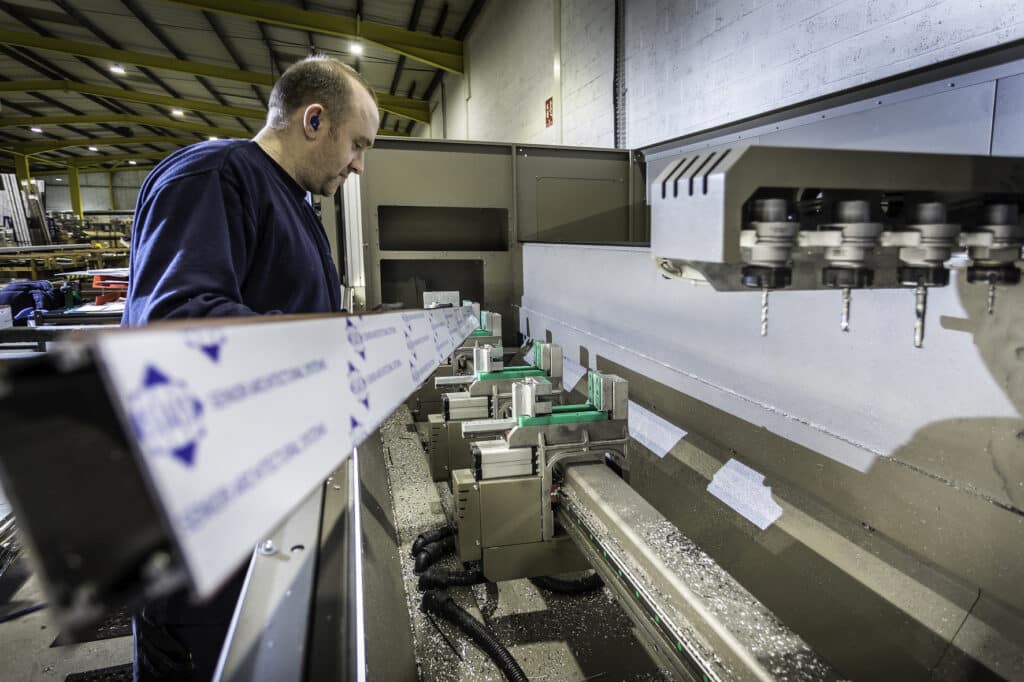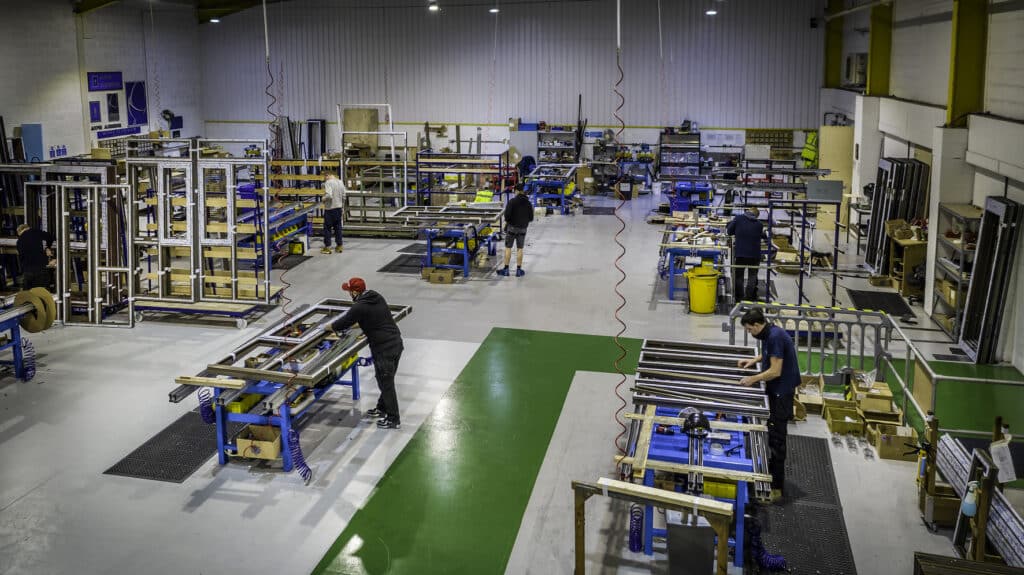The forecast for the commercial property sector is on an upward trajectory but core competencies and project discipline remain key, according to Paul Stevens, Managing Director, Acorn Aluminium.
2023 was a difficult year for construction. An expectation mid-year that the bank rate could reach 6.1% by the end of the year spooked the market, which meant that despite an uptick in new starts in Q3, sluggish levels of activity in Q1 and Q2, meant overall the market was down around 4%.
With inflation now falling faster than expected and the Bank of England having it appears to have successfully wrested back control, there is a wide expectation of a loosening of financial controls, with a cut in interest rates forecast as early as June this year [2024].
“We’re not out of the woods yet but there is definitely an increased sense of optimism about prospects for 2024 from the main contractors that we speak to.”
“We saw very high interest rates last year coupled with falling returns and lacklustre demand from retail, residential and commercial office space.
“We expect falling inflation and an easing of interest rates, to lead to an improved economic outlook and increasing demand from the second half of 2024 and into a period of stronger recovery from 2025.”
Paul Stevens, Managing Director, Acorn Aluminium.
Residential opportunities
Although house prices are expected to see a further drop in 2024, improving economic conditions are forecast to drive increased activity in the sector going into the second half of the year.
This includes the easing of the mortgage market with a drop in interest rates leading to improving affordability.
“The underlying imbalance in demand for new homes versus a shortfall in supply, lower inflation and an expected fall in interest rates, should lead to increased activity in the housing market and residential new build sector.”
“With an underlying focus on redevelopment of urban and brownfield sites acoustic specification of windows, doors and curtain walling, will assume increased importance.”
Paul Stevens, Managing Director, Acorn Aluminium.
Redefining the office
Pandemic WFH in 2020, 2022, and 2023 is shifting to hybrid working in 2024, creating a new requirement for co-working and flexible office spaces.
“We expect increased demand this year, particularly in regional projects. We’ve worked on some very big projects in Leeds, Manchester and the Midlands and we expect that demand to continue into 2024 as hybrid or office-based working becomes normalised post pandemic.
“While this will include new starts, the refurbishment market is also going to be important as employers invest to create lighter, more inviting and flexible spaces to bring staff back and support employee retention.
“This in our view is likely to drive investment in higher quality developments this year.”
Paul Stevens, Managing Director, Acorn Aluminium.
Purpose-Built Student Accommodation (PBSA)
Student university place acceptances were 24% higher in 2023 than they were pre-pandemic (UCAS). Combined with increased demand on multiple-occupancy housing and lower completions of new student accommodation in 2023, demand for PBSA is expected to remain strong throughout 2024.

“Conservative suggest there is a 580,000 bed shortfall in student accommodation with only a limited number of schemes completed last year [2023].”
“With established relationships with some of the UK’s leading PBSA providers, we expect to see sustained demand this year.
“Having supported a number of high profile conversions, the refurbishment of retail and other commercial spaces to provide high quality city centre student accommodation also represents an area of growth.”
Paul Stevens, Managing Director, Acorn Aluminium.
Falling materials price inflation but early engagement still important
Materials price inflation, which peaked at 23% in 2022 is forecast to continue to fall to 3% in 2024. This is forecast by CBRE research to lower the construction cost inflation overall to 2% this year [2024] compared to 10% in 2022.
“The outlook for construction project inflation is looking far more positive for the next 12-months than it has been and it certainly was in 2022.”
“We would still encourage our main contractor partners to engage as early in the design and specification process as possible because the learning point from that period of high inflation is that there are always opportunities to deliver projects more cost effectively without impacting on build quality.”
Paul Stevens, Managing Director, Acorn Aluminium.
Construction skills shortage
One area that isn’t forecast to get better in 2024 is the skills gap. Skilled construction workers are thin on the ground. And its going to get worse before it gets better.

According to the Construction Skills Network (CSN), a further 266,000 workers will be needed to meet projected UK construction demand by 2026, with carpenters, joiners and construction managers among the positions most in demand.
“It makes retention of quality people key.”
“You can have the most detailed designs and specifications – but ultimately, if building products aren’t installed to those specifications, they aren’t going to perform.
“That creates a world of pain for the main contractor and often multiple sub-contractors, including those indirectly associated with individual elements of the build.”
Paul Stevens, Managing Director, Acorn Aluminium.
Design, manufacture and installation
This is where Acorn Aluminium’s model, according to Paul delivers maximum value to commercial partners.
Acorn works with leading architectural aluminium systems specialists including Senior Architectural Systems; Metal Technology Systems; and Technal; to supply high-performance aluminium windows and doors and curtain walling to the commercial sector.

Commercial glazing is, however, one of those areas of a project build where things can easily go wrong, as it brings a number of different specialisms together, often including steel work.
“Steels can run out of tolerance, which can have potentially big implications for curtain walling. It doesn’t matter what the wider economy is doing, get it wrong and your costs can escalate.”
“We bring specialists to your project and put dedicated management teams in place to support effective communication and alignment with other trades.”
Paul Stevens, Managing Director, Acorn Aluminium.
For more about Acorn Aluminium please call 0115 928 2166, email [email protected] or visit www.acornalumnium.com
